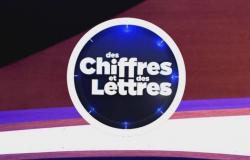Sitting in a café in Vienna, Andreas Joska-Sutanto cuts “Mein Kampf” by Adolf Hitler letter by letter, to make a cookbook, transforming “negative into positive” and “emptying these poisonous words of their substance”.
Still 24 years to reach the end
Painstaking work, begun when the rights to the political manifesto of the dictator born in Austria, which laid down the foundations of Nazi ideology when it was published in 1925, fell into the public domain eight years ago.
“I’m on page 100,” this 44-year-old graphic designer, with big rectangular glasses and a graying beard, told AFP. After almost 900 hours of chisel work on the front alone, barely a quarter of the gigantic project is now complete.
For a few hours a week, it is better not to think too much: according to his calculations, it will take him another 24 years to finish the infamous pamphlet of nearly 800 pages, or 1.57 million vowels and consonants.
The artist wishes to “relieve its weight” from the work
Once extracted from the ancient work with Gothic writing, they are sorted and stored in an organizer.
Then Andreas Joska-Sutanto used it for his book project which already included around twenty recipes, such as that of a pizza which came from his father, an asparagus salad or even egg gnocchi, a typically Austrian specialty including the Führer loved it.
Like a cook with his ingredients, “I want to deconstruct and transform” the work that has done so much harm by “relieving it of its weight,” he explains.
And if he left the black and white portrait of the dictator responsible for the genocide of the Jews intact at the beginning of the large, worn and now gaping book, it is to demonstrate that “deprived of his words”, Hitler is reduced to “watching in the void “.
A controversial project
The manager of the café, Michael Westerkam, 33, welcomes this unique project because it raises public awareness of a difficult subject in this working-class neighborhood on the outskirts.
However, it does not please everyone: Andreas Joska-Sutanto, who does not have a publisher in mind for his “Kein Mampf” (“Forbidden to stuff oneself”, provisional name), admits to having already had to apologize to a person who finds their approach “inappropriate”.
A specialist of this period preferring to remain anonymous also finds that the historical and artistic relevance of the initiative remains “limited”, describing it as “strange”.
Austria, annexed by the Third Reich in 1938, has long presented itself as a victim of Nazism, denying its responsibility for the murder of 65,000 Austrian Jews and the forced exile of 130,000 others. It was only from the end of the 1980s that she began working on memory.






